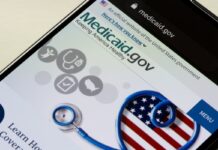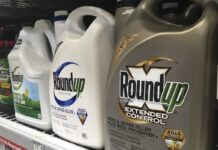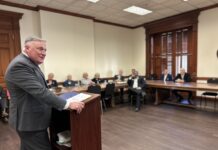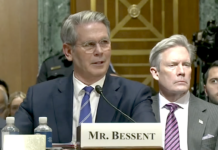
WASHINGTON (States Newsroom) — A New York judge agreed Tuesday to delay the criminal sentencing of former President Donald Trump in the state hush money case after Trump claimed the U.S. Supreme Court’s presidential immunity decision absolves him.
New York Justice Juan Merchan, who oversaw the case, ordered the delay until Sept. 18 so the court could hear arguments on how the Supreme Court’s immunity decision on Monday impacts Trump’s state-level convictions, according to court filings.
Trump claims his 34 New York felony guilty verdicts violate Monday’s high court ruling and should be thrown out, according to a letter to Merchan from Trump attorney Todd Blanche.
“The verdicts in this case violate the presidential immunity doctrine and create grave risks of ‘an Executive Branch that cannibalizes itself,’” Blanche wrote, adding that after further review, “it will be manifest that the trial result cannot stand.”
A Manhattan jury on May 30 found the former president guilty on 34 felony counts of falsifying business records related to a hush money payment made to a porn star in the weeks prior to the 2016 presidential election.
Manhattan District Attorney Alvin Bragg agreed in a letter to Merchan to a two-week delay in Trump’s sentencing, according to the court filings.
Trump’s team has until July 10 to file its argument. Bragg agreed to a July 24 deadline for his reply.
“Although we believe (the) defendant’s arguments to be without merit, we do not oppose his request for leave to file and his putative request to adjourn sentencing pending determination of his motion,” Bragg wrote Tuesday.
Merchan scheduled the sentencing for July 11, just days before Trump is scheduled to be officially nominated as his party’s 2024 presidential candidate at the Republican National Convention in Milwaukee. The new date pushes the sentencing less than two months before Election Day.
Presidential immunity opinion
The Supreme Court ruled in a 6-3 decision that former U.S. presidents enjoy absolute criminal immunity for “core Constitutional” powers and are “entitled to at least presumptive immunity from prosecution for all his official acts,” but are not immune from criminal prosecution for “unofficial acts.”
Trump escalated the question of presidential immunity to the Supreme Court after two lower courts denied his requests for immunity from federal criminal charges alleging he attempted to overturn the 2020 presidential election results during his last months in the Oval Office.
The justices’ majority opinion ordered the 2020 election interference case back to the lower district court to decide whether Trump’s actions were official or unofficial acts. Those actions include Trump’s conversations with state officials about overturning election results and his social media posts claiming election fraud.
NY verdict
Blanche asked Merchan to “set aside” Trump’s guilty verdict based on Monday’s Supreme Court ruling in Trump v. United States, according to the July 1 letter.
Blanche claimed that evidence presented by the prosecution against Trump during the New York case were likely “official acts.”
The New York state case centered on actions Trump took during his first year in office, including an Oval Office meeting to discuss financial transactions with his former personal attorney and checks that he personally signed.
“Under (Trump v. U.S.), this official-acts evidence should never have been put before the jury,” Blanche wrote.
“Moreover, as we argued previously, (Trump v. U.S.) forbids the ‘[u]se of evidence about such [official] conduct, even when an indictment alleges only unofficial conduct.’ This includes President Trump’s ‘Tweets’ and ‘public address[es],’” Blanche wrote, quoting directly from the Supreme Court opinion.
New York prosecutors presented mounds of evidence, including business records and witness testimony, during the seven-week trial illustrating that Trump repaid his former lawyer Michael Cohen for giving $130,000 to porn star Stormy Daniels prior to the 2016 election. Trump later recorded the payments as “legal expenses” and increased the amount to Cohen to account for taxes and a bonus.
Testimony also revealed an Oval Office meeting Trump held with Cohen to discuss the repayment scheme, and evidence included nine checks bearing Trump’s personal signature.







